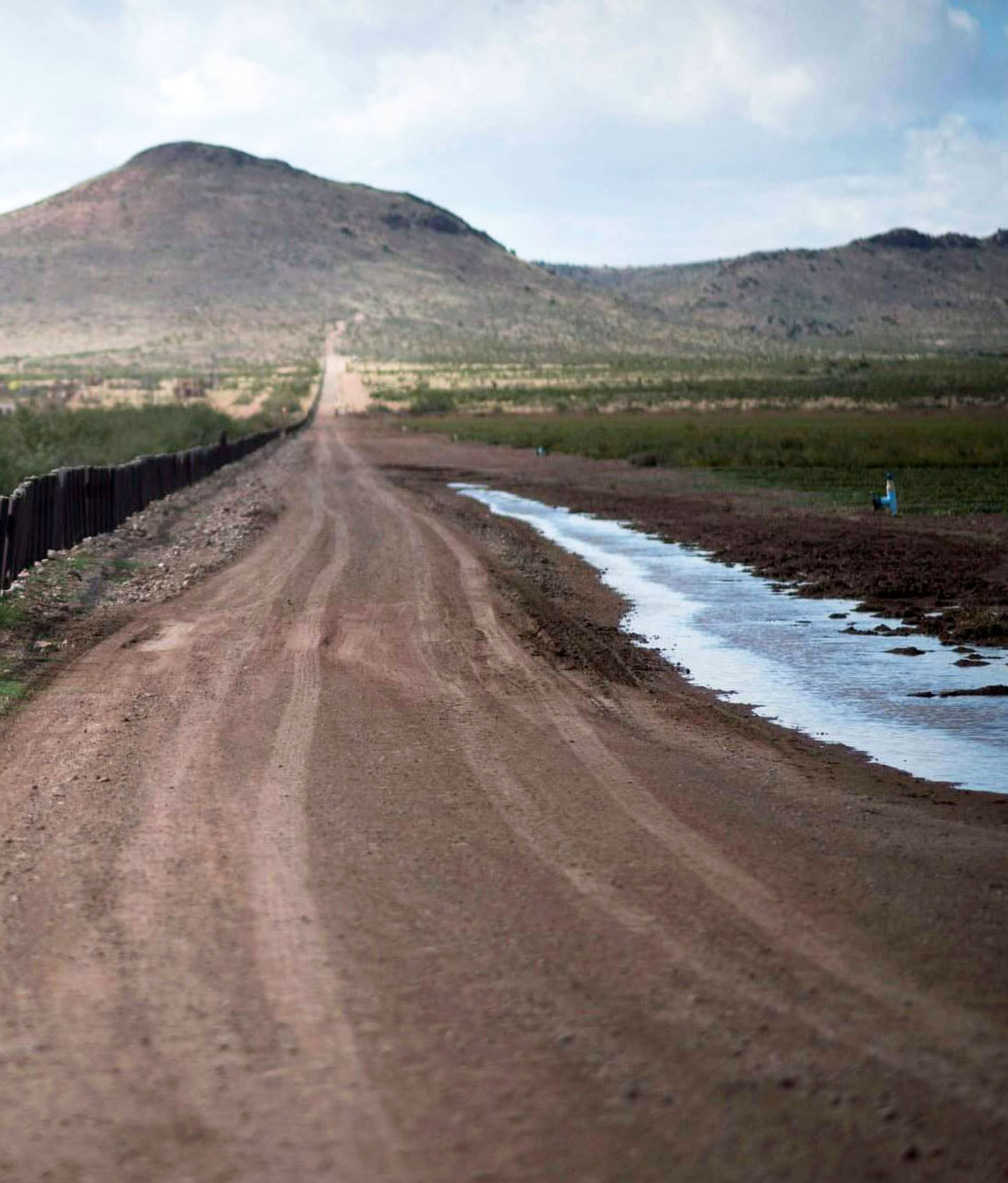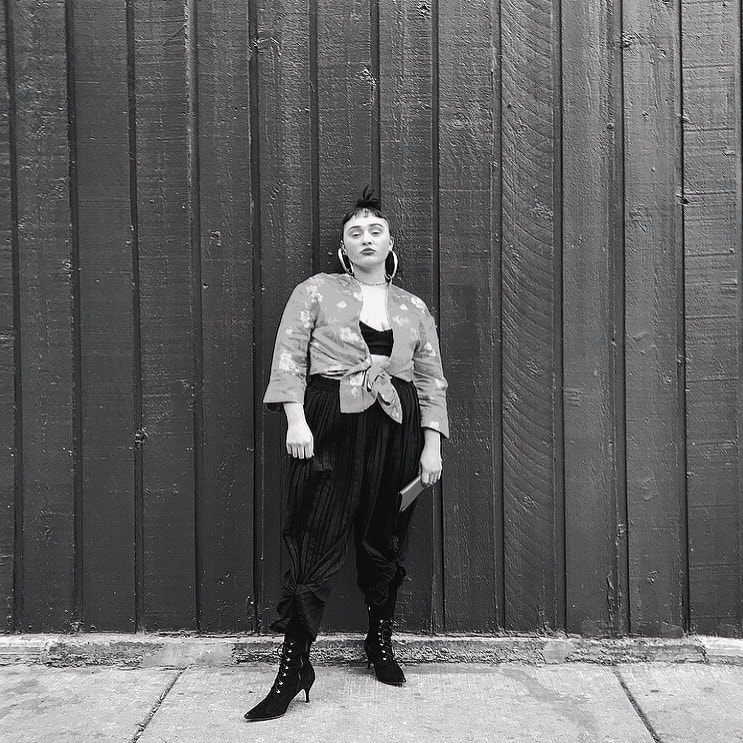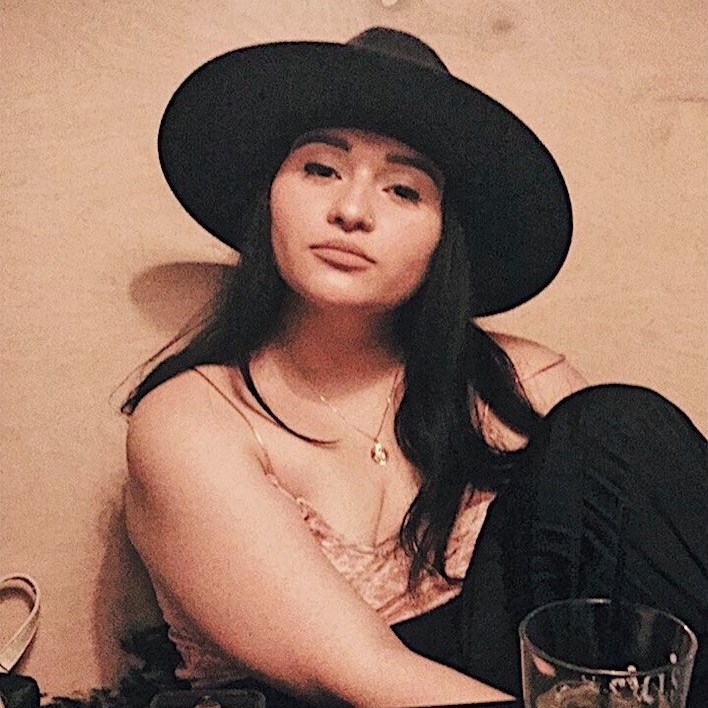Tres Millas a mi LibertadFollow along as Rebecca Granado performs "Tres Millas a mi Libertad" I could taste freedom from my bedroom window. Where the silhouette of that town was visible. Nothing but dry, barren land came between me, and that town. It was a three mile walk of anticipation, and well worth it back in the day. Blazing that trail, the sun beating down on my shoulders, the hot tar road under my feet. Vultures circling in the sky, helicopters calculating their radius. These were the sights when I walked that stretch of road. The migra would pass me on that road at top speed in their hummers as they were led to the scene by an anonymous tip. Up ahead I could see a roadblock in the making, marked by orange cones and bright reflectors to warn all traffic that suspicion lay ahead. My route would detour on the halfway point, before the port, before customs, before the suspicion marked by the men in green. The halfway point was the Go For It Café. a.k.a. Old man Bobbos. What better place to taunt the men in green. They would watch us with their binoculars partying at the café. In the distance on a hill next to a mansion is where they would retreat. How did we know they were watching? We had binoculars, too. Suspicion was all around. We would shout gritos to the migra while we danced, sang, and drank our 40’s to Chalino. What were they gonna do? Nothing. We are American citizens in our every right. These men in green had arrested our antepasados at one point. Maybe it was a long time ago, but we carried that desesperación. La neta éramos sinvergüenzas en esos tiempos. I mean we would walk 3 miles carrying a box of empty Negra Modelo bottles for refills. We were thirsty. Not only for la crema de la cerveza pero también por la libertad, que nos esperaba en el otro lado. Sabíamos que algo nos esperaba. Cruzamos día tras día, buscando esa libertad. Queríamos escapar! Get away from the rigidity of the red, white, and blue. Al cruzar, presencia militar, cuernos de chivo, chalanes acompañando los jefes. I'm home, I would think to myself. Tranquilidad, protección, ánimo. Where else but home would we cruise in bulletproof trucks, being chased by army tanks, shot at con unos r-15’s. Yo quería ser la novia de un Mafioso. Yo quería ser adornada con joyas y viajar a lugares exóticos. Llegar a mi destino, pero en un jet privado. Disfrutamos de la comida más rica, usábamos ropa de la tela más fina, escapábamos a las playas más bonitas del mundo. Las mexicanas no nos querían a las chicanas. Ellas veían que cruzábamos dia tras dia. They longed for our life on the other side and we wanted their freedom, on their side. We had it both ways, and they couldn’t, and they hated us for it. La vida aparece como fantasma y la muerte desaparece al cerrar los ojos. Learning to run, duck and dodge, jumping out of moving vehicles, this was the life, this was the freedom we sought. Cada vez que cruzábamos y regresamos vivos, nos daba mas valor seguir cruzando. Cruzaba la garita a todas horas, en todas condiciones, faltandoles respeto a los aduanales. Me valia madre. When you escape bullets, death, rape, and secuestros no one can touch you, it changes a person. Yo no pensaba lo que a mi me daba valor, le quitaba honor a otra persona. My intuition guided me all along that road to freedom. It whispered in my ear as I chugged, as I exhaled the smoke from my toke, as my paranoia grew. Constantly having to watch over my shoulder, trusting no one, especially not myself. Now a hundred miles and twelve feet of steel fence obscure my view of that silhouette. I can no longer thirst for that road. The bottles remain empty. Binoculars with no one in sight.  Rebecca Granado, born and raised in Columbus, New Mexico, dropped out of high school and traveled the country by bus, living in tents along the way. “An undeclared social researcher,” as she called herself, she resumed schoolwork and earned a Master of Science in Family and Child Science and Addiction Studies from New Mexico State University in Las Cruces. This story in Somos en escrito is her first publication. Rebecca is working on a first novel.
2 Comments
Two Poems: |
| Karen Valencia is a first generation Mexican American poet born and raised on Chicago’s Southwest side. A Northwestern graduate, Karen has appeared in Huizache, The Magazine for Latino Literature (2014) and most recently in the Literary Issue of Southside Weekly (2019). Karen is also a fashion stylist, model, DJ and co-creator of DESMADRE, a Latinx fashion styling collective. To see more of her work you can visit her website (karenvalencia.com) and to check out her other projects, follow her on Instagram (@karennoid). |
Archives
July 2024
April 2024
February 2024
July 2023
June 2023
May 2023
March 2023
February 2023
January 2023
November 2022
October 2022
September 2022
August 2022
May 2022
April 2022
March 2022
February 2022
January 2022
November 2021
October 2021
September 2021
August 2021
July 2021
June 2021
May 2021
March 2021
January 2021
December 2020
November 2020
October 2020
September 2020
August 2020
July 2020
June 2020
May 2020
April 2020
March 2020
February 2020
January 2020
November 2019
October 2019
September 2019
August 2019
July 2019
June 2019
May 2019
April 2019
March 2019
February 2019
January 2019
November 2018
September 2018
August 2018
July 2018
May 2018
April 2018
March 2018
February 2018
March 2017
January 2017
May 2016
February 2010
Categories
All
Archive
Argentina
Bilingüe
Book
Book Excerpt
Book Review
Boricua
California
Caribbean
Central American
Cesar Chavez
Chicano
Chicano/a/x
Chumash
Chupacabra
Círculo
Colombiana
Colombian American
Colonialism
Cuban American
Culture
Current Events
Death
Debut
Dia De Los Muertos
Diaspora
Dominican American
Dreams
East Harlem
Ecology / Environment
El Salvador
Emerging Writer
English
Excerpt
Family
Farmworker Rights / Agricultural Work / Labor Rights Issues
Flashback
Floricanto
Food
History
Identity
Immigration
Imperialism
Indigenous
Indigenous / American Indian / Native American / First Nations / First People
Interview
Language
Latin America
Love
Mature
Memoir
Memory
Mestizaje
Mexican American
Mexico
Nahuatl
Nicaraguan-diaspora
Nicaraguan-diaspora
Ofrenda
Patriarchy
Performance
Peruvian American
Poesia
Poesía
Poesía
Poet Laureate
Poetry
Prose Poetry
Puerto Rican Disapora
Puerto Rico
Racism
Review
Salvadoran
Social Justice
Southwest
Spanish
Spanish And English
Surrealism
Texas
Translation
Travel
Ulvalde
Visual Poetry
War
Women
Young-writers
Donate and Make Literature Happen
is published by the Somos En Escrito Literary Foundation,
a 501 (c) (3) non-profit, tax-exempt corporation. EIN 81-3162209






 RSS Feed
RSS Feed